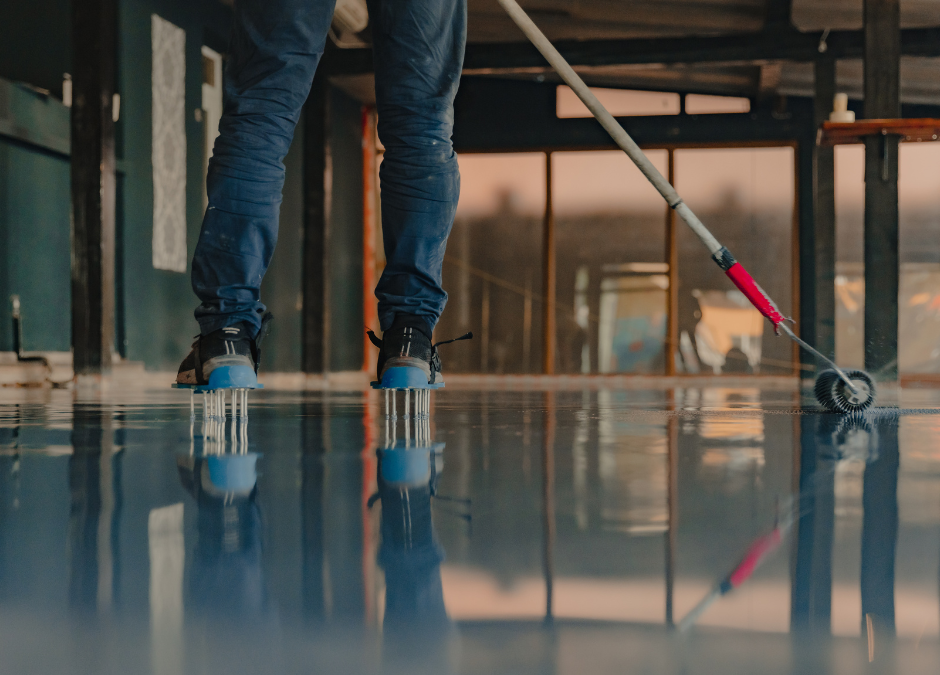Introduction to Epoxy Floor Coatings
When it comes to transforming your garage, garage floor paint is often one of the first solutions homeowners consider. Its affordability and ease of use make it a popular option for those looking for a quick refresh or a DIY project. However, paint may seem like an easy fix, it may not always provide the durability or appearance you’re hoping for in a high-traffic, multipurpose space.
At Garage Force, we specialize in high-performance coatings that offer enhanced durability, protection, and longevity for garage floors. Our coatings include a clear coat that enhances the overall finish and durability of the application. In this guide, we’ll discuss the pros and cons of garage floor paint and explore why specialized coatings might be a smarter choice for homeowners seeking a long-lasting, visually appealing floor.
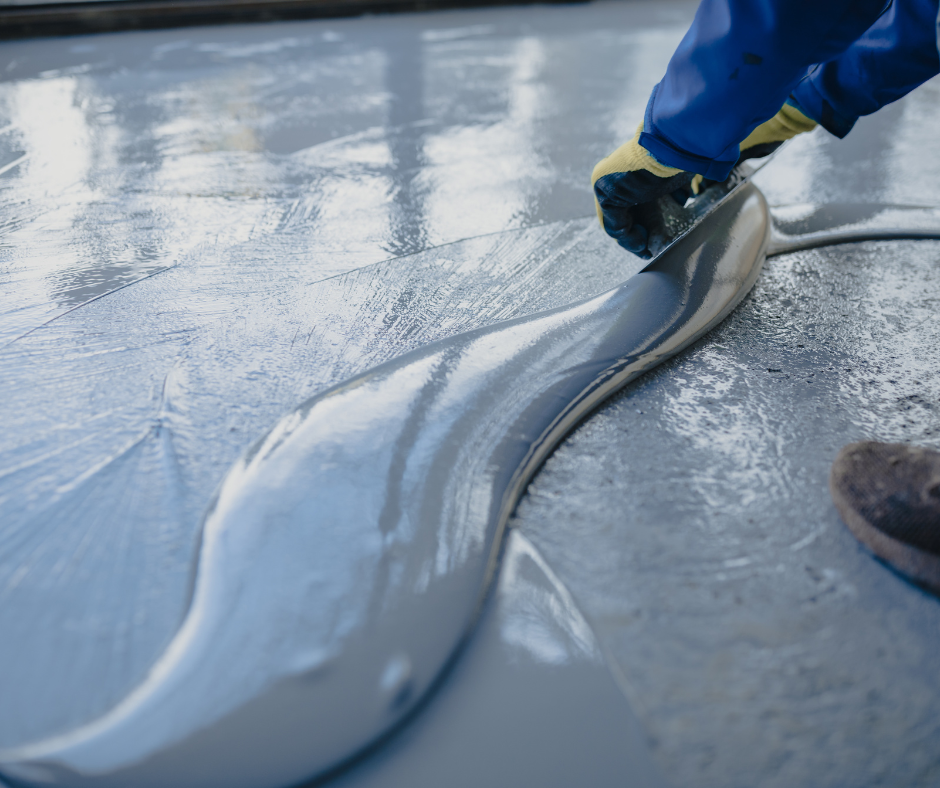
What is Garage Floor Paint?
Garage floor paint is a specialized coating designed specifically for concrete surfaces, such as garage floors. This liquid solution is applied to the floor to provide a protective layer against damage, stains, and general wear and tear. Available in a variety of colors and finishes, floor paint allows homeowners to customize the look of their garage to match their personal style. Its popularity stems from its suitability for DIY projects, as it requires minimal equipment and is relatively easy to apply, making it an accessible option for many. Some epoxy-based paints offer a full broadcast option, providing a complete solution for a durable and visually appealing garage floor.
Benefits of Garage Floor Paint
Garage floor paint offers several notable benefits that make it an attractive option for homeowners:
- Protection: One of the primary advantages of paint is its ability to protect the concrete surface from damage caused by oil spills, chemicals, and heavy foot traffic. This protective layer helps extend the life of your garage floor.
- Durability: Designed to withstand use, floor paint can last for many years with proper maintenance, providing a long-term solution for your flooring needs.
- Aesthetics: With a wide range of colors and finishes available, floor paint allows you to customize the look of your garage, enhancing its overall appearance.
- Easy Maintenance: Floor paint is easy to clean and maintain. Regular sweeping and occasional mopping are usually sufficient to keep the floor looking its best.
- Cost-Effective: Compared to other flooring options, such as epoxy floor coating, paint is a more budget-friendly solution, making it an appealing choice for cost-conscious homeowners.
Types of Garage Floor Paint
There are several types of garage floor paint available, each with its own unique properties:
- Latex-Based Paint: This water-based paint is easy to clean up and dries quickly. It is a popular choice for those looking for a straightforward application process.
- Oil-Based Paint: Known for its hard, durable finish, oil-based paint provides excellent protection for garage floors. However, it requires solvent cleanup and has a longer drying time.
- Epoxy-Based Paint: This two-part paint hardens when mixed together, creating a strong and durable finish. Epoxy-based paint is highly resistant to chemicals and wear, making it a robust option for garage floors.
- Acrylic-Based Paint: Flexible and resistant to cracking, acrylic-based paint is another water-based option that offers good durability and ease of application.
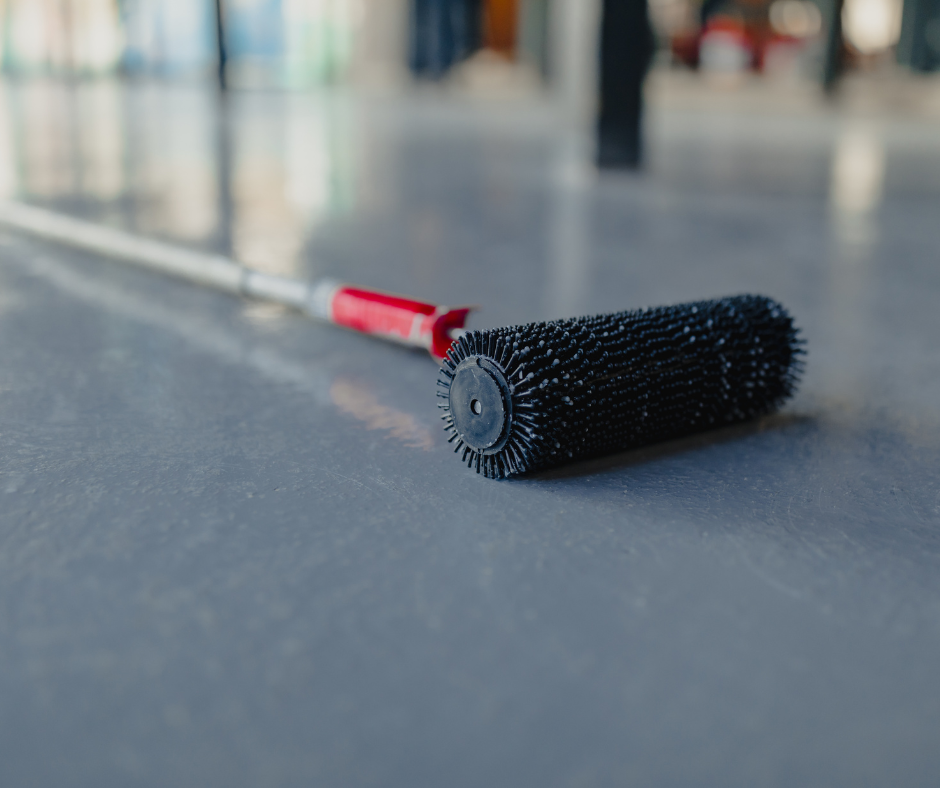
Preparing Your Garage Floor for Paint
Preparing your garage floor for paint is a crucial step to ensure a successful and long-lasting finish. Start by clearing the floor of any debris, dirt, or old coatings. Using a pressure washer can be particularly effective for cleaning the floor, especially in areas with stubborn stains or heavy dirt buildup. Make sure to allow the floor to dry completely before moving on to the next steps.
Next, inspect the floor for any damaged concrete or cracks. If you find any, use a concrete repair powder to fix these areas, following the manufacturer’s instructions carefully. Once the repairs are complete, use a broom or vacuum to remove any remaining dust or debris.
Finally, tackle any oil or grease stains with a degreaser or cleaner. This step is essential to ensure a strong bond between the paint and the concrete surface. By thoroughly preparing your garage floor, you set the stage for a smooth and durable finish.
Applying Garage Floor Paint
Applying paint is a relatively straightforward process, but it does require some preparation and patience. Begin by reading the manufacturer’s instructions and following any recommended safety precautions.
Start by applying a primer to the floor if the manufacturer recommends it. This primer will help create a strong bond between the paint and the concrete surface. Once the primer is dry, you can proceed with the first coat of paint. Work in sections to maintain even coverage, using a roller or brush depending on the desired finish.
Allow the first coat to dry completely before applying a second coat, if necessary. Make sure to follow the manufacturer’s instructions for drying times and the number of recommended coats. This step-by-step approach ensures a professional-looking finish that will stand the test of time.
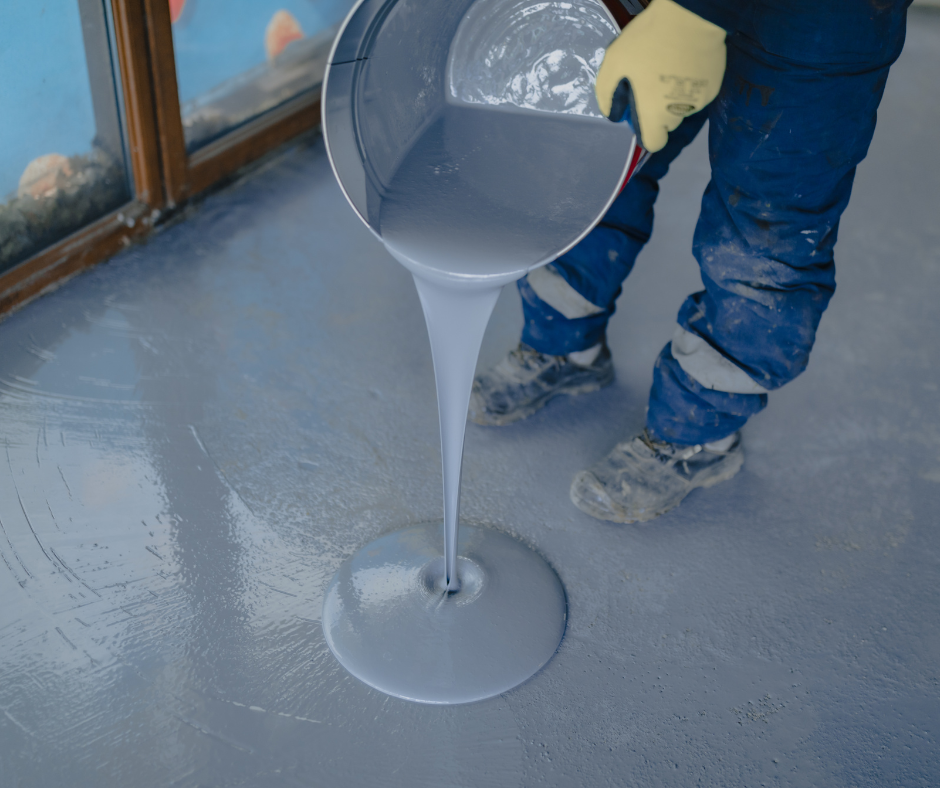
Curing and Drying Times
Curing and drying times for floor paint can vary depending on the type of paint and environmental conditions. Generally, most floor paints take between 2-4 hours to dry to the touch and 24 hours to fully cure.
It’s essential to follow the manufacturer’s instructions for curing and drying times to ensure a successful finish. Avoid exposing the floor to heavy traffic or water during the curing process, as this can damage the paint and compromise its durability.
Here are some general guidelines for curing and drying times:
- Epoxy Floor Coatings: 2-4 hours to dry to the touch, 24 hours to fully cure
- Latex-Based Paints: 1-2 hours to dry to the touch, 12-24 hours to fully cure
- Oil-Based Paints: 2-4 hours to dry to the touch, 24-48 hours to fully cure
Always adhere to the manufacturer’s specific instructions for curing and drying times, as these can vary depending on the product and environmental conditions. By following these guidelines, you can ensure a durable and long-lasting finish for your garage floor.
Garage Floor Paint vs. Other Options
While garage floor paint is a popular choice for DIY projects, it may not be the best option for every homeowner. Here are some pros and cons to consider:
Pros:
- Easy Installation: Garage floor paint is relatively easy to apply, making it a suitable choice for DIY enthusiasts.
- Cost-Effective: It is a budget-friendly option compared to other flooring solutions.
- Variety of Colors and Finishes: Homeowners can choose from a wide range of colors and finishes to customize their garage.Cons:
- Durability: Garage floor paint may not be as durable as epoxy coatings, especially in high-traffic areas.
- Multiple Coats: Achieving the desired finish may require multiple coats, increasing the time and effort needed for application.
- Suitability for Damaged Concrete: Garage floor paint may not adhere well to damaged concrete, requiring additional preparation.
Other options to consider include:
- Epoxy Coatings: These provide a strong and durable finish, making them a popular choice for garage floors. However, they can be more expensive and may require professional installation.
- Concrete Sealers: Clear coatings that protect the concrete surface from damage. They are easy to apply and can be used on damaged concrete, but may not offer the same level of durability as garage floor paint, and certainly not the same durability as epoxy or polyaspartic coatings.
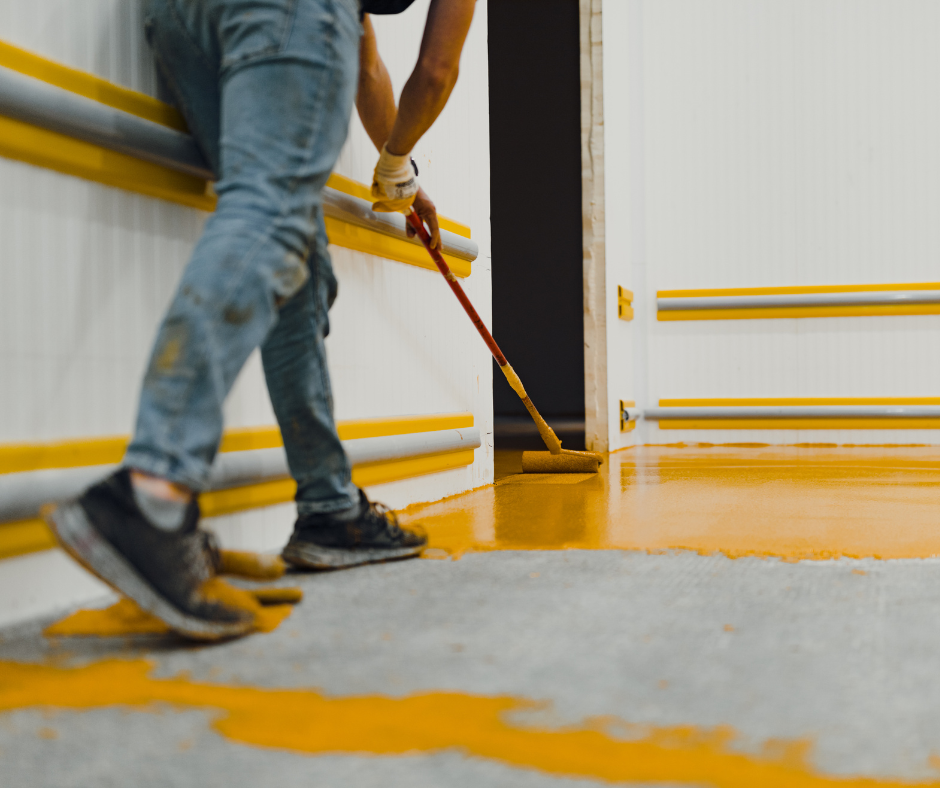
Conclusion
Garage floor paint is a popular choice for DIY projects, offering a cost-effective and easy-to-install solution for protecting and customizing garage floors. With a variety of colors and finishes available, homeowners can choose the perfect solution for their garage. However, it’s important to consider the pros and cons of floor paint and other options, such as epoxy coatings and concrete sealers, to determine the best choice for your specific needs. By weighing the benefits and limitations of each option, you can make an informed decision that ensures your garage floor remains functional, durable, and visually appealing for years to come.

